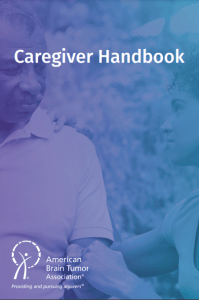
November is National Family Caregivers Month — a time to recognize the significant contributions that caregivers make every day.
Caregivers wear many hats, whether it’s finding information about treatments, scheduling follow-up appointments or managing day-to-day tasks.
They often have unmet needs that are seen as secondary to the patient’s, according to Jamie Jacobs, PhD, an assistant professor, clinical psychologist, and Director of the Caregiving Research Program at Massachusetts General Hospital.
She presented “Living Your Best Life As A Caregiver” during the 2022 National Conference.
For National Family Caregivers Month, MindMatters shares five tips from Dr. Jacobs to help caregivers take care of themselves.
1. Be open to sharing your fears and worries.
Dr. Jacobs says caregivers often deal with a phenomenon called “protective buffering,” where individuals want to protect others from their fears, worries or sadness – so they keep things to themselves. This can lead to a breakdown in communication and, in turn, isolated coping.
Dr. Jacobs encourages patients and caregivers to openly communicate their feelings. Back-and-forth dialogue can create a sense of working things out together. This form of shared coping can help relieve stress and tension.
Using the “three Fs” can help make communication more direct and well-received, she says. This entails making a statement of fact (what the concern is), feeling (how this action affects you), and a fair request (a reasonable request to help resolve the concern).
2. Create your own circle of support.
Caregivers need their own support network. Dr. Jacobs says caregivers should think of the situation they’re in and identify their needs. Next, caregivers should ask themselves:
- Is the need for practical support (like help with grocery shopping or driving the patient), or emotional support (like having a friend)?
- Who in your circle, a friend or family member, is good at giving this kind of support?
- Do you have any barriers asking for help or receiving support? Do you feel that you’re burdening others by asking for help or feel you should do it all yourself?
Dr. Jacobs encourages caregivers to then challenge their beliefs and ask whether they’re accurate.
“Caregivers taking care of themselves is about being the best caregiver, but also because their own physical and emotional health deserve attention as well.”
—Jamie Jacobs, PhD
3. Make plans for self-care.
Dr. Jacobs encourages caregivers to think of activities or hobbies they used to enjoy and figure out how to bring them back into their lives.
Caregivers may not have the same time or energy as before, but thinking creatively is a skill to help re-adopt enjoyable activities in a way that works with their current lifestyle and schedule.
Dr. Jacobs says to make self-care plans, identify potential barriers and how to resolve them, and have a back-up plan ready.
4. Build relaxation skills.
It’s not uncommon for caregivers to get stuck in the flight-or-fight response. Adrenaline and cortisol are part of the evolutionary response humans have adapted to — but being in a constant state of stress can lead to caregivers facing physical issues like inflammation, sleep issues and stress on the body.
To help dampen this stress response, Dr. Jacobs encourages caregivers to adopt relaxation skills like progressive muscle relaxation (PMR).
An example of PMR is taking a minute to close your eyes, hold your arms at a 45-degree angle and make fists, and stay in this position for a few minutes. You should be able to notice the difference between tension and relaxation and use these simple exercises when needed.
5. Do what you can.
 Caregiving can be overwhelming at times, but you’re not alone. Dr. Jacobs says there are a number of helpful resources, including the ABTA Caregiver Resource Center, the Caregiver Handbook, the online support forum Connections, and the Patient & Caregiver Mentor Support Program.
Caregiving can be overwhelming at times, but you’re not alone. Dr. Jacobs says there are a number of helpful resources, including the ABTA Caregiver Resource Center, the Caregiver Handbook, the online support forum Connections, and the Patient & Caregiver Mentor Support Program.
Watch Dr. Jacobs’ presentation at the National Conference and download the presentation slides.

Jessie Schlacks
Jessie is Managing Editor of the bi-monthly e-newsletter MindMatters. Submit story ideas or questions to jschlacks@abta.org.




















